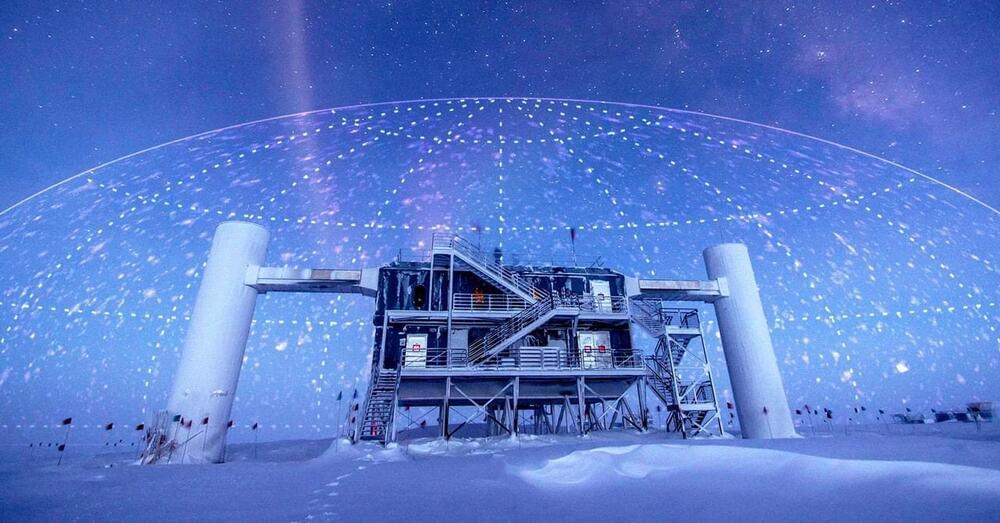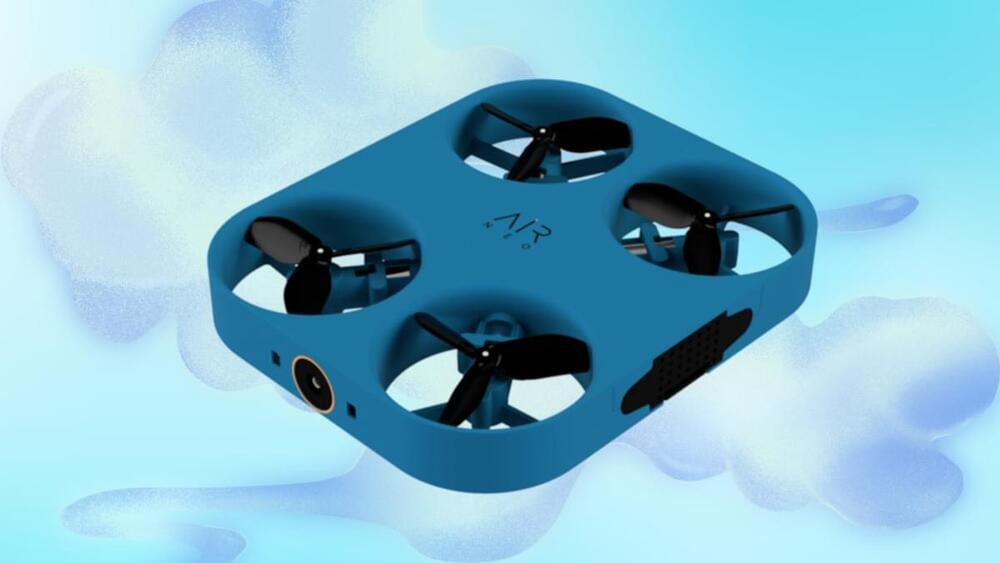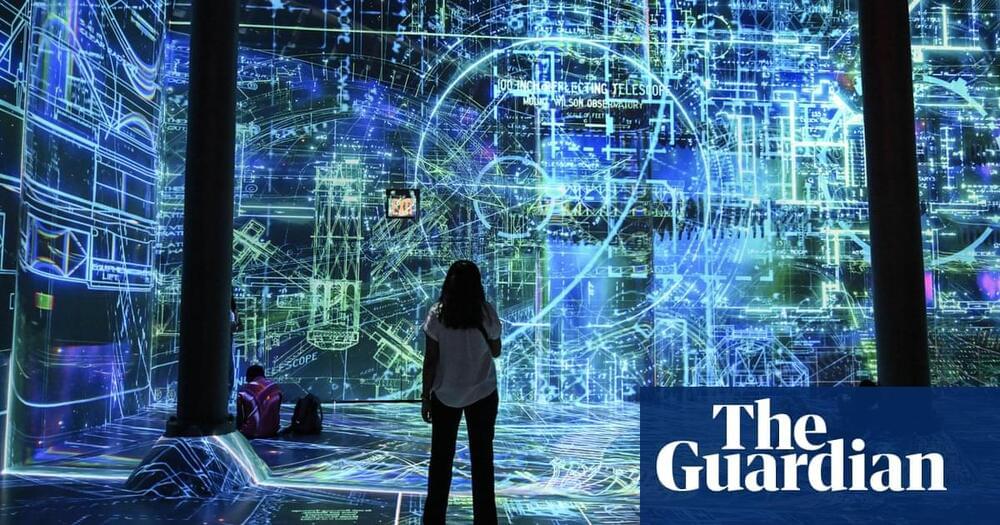Physicists finally know where at least some of these high-energy particles come from, which helps make the neutrinos useful for exploring fundamental physics.




The development of your baby’s brain could be influenced by the microbes in their belly, scientists have found.
The trillions of microbes that live inside our guts play essential roles in a range of bodily processes, from digestion to mental health. The gut contains more than 100 million nerve cells—the highest concentration in any part of the body other than the brain. Now, we are also beginning to learn about the roles of these microbes in the earliest stages of our lives.
“The microbiome plays an important role in the early development of several systems, such as the nervous and immune system, as well as providing another layer of protection against pathogens [disease],” Sebastian Hunter, a researcher from the University of British Columbia who led a study on the subject published Wednesday in the scientific journal PLOS One, told Newsweek.


Yet the automation of such tasks also means the chance to eliminate or reduce certain roles, not just in administration, but across many fields as the technology becomes more sophisticated. According to a survey of professionals by Thomson Reuters published last week, 67% of respondents believe AI will have a great impact on their profession in the next five years, while more than half predict the technology will create new career paths.
So exactly what are those new professional opportunities that the next generation of workers should be trying to pursue?
“There is no such thing as a future-proof career anymore,” says Dr Andrew Rogoyski, the director of innovation and partnerships at the Surrey Institute for People-Centred Artificial Intelligence at the University of Surrey.

In late 1998, when I was just beginning my career in technology, I read in the venerable Phrack magazine how poor input sanitization allowed rain.forest.puppy (the pseudonym used by Jeff Forristal) to pass SQL query strings directly to the back-end database of a Web application.
It’s an unfortunate reality that a quarter of a century later, SQL injection — among the lowest hanging of security fruit — is still included in the Open Worldwide Application Security Project (OWASP) Top 10 list of security vulnerabilities. One of the worst attacks ever occurred back in 2008, when Heartland Payment Systems was breached and more than 130 million credit and debit card numbers were compromised. In 2023, the Cl0p ransomware group exploited previously unknown SQL injection vulnerabilities in MOVEit, Progress Software’s file transfer program, and compromised hundreds of victims as part of a supply chain attack.
We do not have insight into Progress Software’s software development life cycle or security practices to ascertain what happened. While a vulnerability assessment system or even a bug hunting program could have potentially identified SQL injection flaws in the code before it was exploited, focusing on producing code that is secure by construction is an even better way to address this class of vulnerability.

The Nvidia GeForce RTX 5,080 looks to be a couple of years away, as the RTX 4090 is still going strong. Nvidia hasn’t officially announced the card or the next-generation architecture it will be built around, but there are a few key details we’ve gleaned over the last several months.
Whenever it appears, it will have big boots to fill. Nvidia’s GeForce RTX 4,080 is one of the best graphics cards with its superb performance, ray tracing chops, and vigorous frame rate-boosting DLSS 3. Its hefty $1,199 price tag raised a few eyebrows, but if the RTX 5,080 launches with a similar slate of improvements, we could be in for another pricey top-tier card.
And appeared in everything from mythology to comic books, but the future might offer technologies that turn these dreams into reality.
Today we’ll explore some of those options, from superstrength and speed to options like telepathy.
Visit our sponsor, Brilliant: https://brilliant.org/IsaacArthur/
Visit our Website: http://www.isaacarthur.net.
Join Nebula: https://nebula.tv/videos/isaacarthur-earth-after-humanity.
Support us on Patreon: https://www.patreon.com/IsaacArthur.
Support us on Subscribestar: https://www.subscribestar.com/isaac-arthur.
Facebook Group: https://www.facebook.com/groups/1583992725237264/
Reddit: https://www.reddit.com/r/IsaacArthur/
Twitter: https://twitter.com/Isaac_A_Arthur on Twitter and RT our future content.
SFIA Discord Server: https://discord.gg/53GAShE
Listen or Download the audio of this episode from Soundcloud: Episode’s Audio-only version: https://soundcloud.com/isaac-arthur-148927746/superpowers.
Episode’s Narration-only version: https://soundcloud.com/isaac-arthur-148927746/superpowers-narration-only.
Credits:
Clarketech: Superpowers.
Episode 191, Season 5 E26
Written by:
And today we will examine the idea to see if there are any ways under known science that might permit it, as well as discuss some novel uses for the technology that tend to be overlooked.
Visit our Website: http://www.isaacarthur.net.
Join Nebula: https://go.nebula.tv/isaacarthur.
Support us on Patreon: https://www.patreon.com/IsaacArthur.
Support us on Subscribestar: https://www.subscribestar.com/isaac-arthur.
Facebook Group: https://www.facebook.com/groups/1583992725237264/
Reddit: https://www.reddit.com/r/IsaacArthur/
Twitter: https://twitter.com/Isaac_A_Arthur on Twitter and RT our future content.
SFIA Discord Server: https://discord.gg/53GAShE
Listen or Download the audio of this episode from Soundcloud: https://soundcloud.com/isaac-arthur-148927746/teleportation.
Cover Art by Jakub Grygier: https://www.artstation.com/artist/jakub_grygier.
Script Editors.
Keith Blockus.
Mark Warburton.
Matthew Acker.
Graphics Team:
Edward Nardella.
Jarred Eagley.
Justin Dixon.
Katie Byrne.
Kris Holland of Mafic Stufios: www.maficstudios.com.
Misho Yordanov.
Pierre Demet.
Sergio Botero: https://www.artstation.com/sboterod?fref=gc.
Stefan Blandin.
Music Supervisor.
Luca De Rosa — [email protected].
Music:

Concrete is responsible for 8 percent of the world’s carbon emissions.
In construction, concrete emissions refer to the greenhouse gas emissions associated with the production and use of concrete, one of the most widely used construction materials globally. Due to energy-intensive cement production processes and chemical reactions that take place during concrete curing, the concrete industry is a substantial source of carbon dioxide (CO2) emissions, responsible for an estimated 8 percent of the world’s emissions.
Cement, which is a byproduct of heating limestone (calcium carbonate) and other minerals to high temperatures in a kiln, is the main component of concrete. In order to produce the… More.
Jewett is on the hunt for materially efficient components that can be utilized to construct structures such as bridges and buildings. He does this through the use of computational power. During his work, he also takes into account additional restrictions, particularly making sure the manufacturing cost isn’t too expensive.
Before beginning his PhD studies, Jewett worked in the construction industry, he spent a year and a half as a structural engineer in New York City, which gave him a knack for producing work that can actually be put into practice. Jewett adds that the sooner he can complete his work, the better.
“The time horizon of when these things need to be implemented is relatively short if we want to make an impact before global temperatures have already risen too high. My PhD research will be developing a framework for how that could be done with concrete construction, but I’d like to keep thinking about other materials and construction methods even after this project is finished,” explained the student.